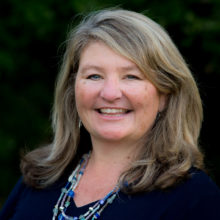
The following is Mary Ann Wolf’s “Final Word” from the May 2023 episode of Education Matters on current legislative efforts on opportunity scholarships and student funding.
There are few days that go by that I don’t have a moment of appreciation for the beauty around us in North Carolina. The trees, the hiking trails, the flowers … it’s quite amazing. I seem to notice it even more lately, as spring has taken its time.
As I had another of these moments recently, I was struck by the juxtaposition of this beauty and what is happening in our state government. It does not matter what political party you support, it does not matter what your key issues are (mine being education), or what zip code you live in — the policies under consideration will impact your community for years to come, and it’s critical that we all pay attention.
So far in 2023, the North Carolina Supreme Court has reversed multiple decisions made by its prior majority, driven by partisan politics rather than judicial precedent. Over 1,600 bills have been introduced so far in our legislative session, with many of them having the potential to make dramatic changes to our governance structures, reproductive rights, LGBTQ+ rights, access to medical care, and funding and support for public education. We are at a place where we have to decide what we want for this beautiful, special state. And, I have a few questions for each of you.
- Do we believe in democracy with a separation of powers and checks and balances?
Over the past few months, our Supreme Court, which is now selected by partisan election, decided to reopen and change the ruling on several cases that were decided only this fall. Recently, the Supreme Court decided to uphold voter ID requirements, allow gerrymandered voting districts, and remove voting rights for some citizens, and they will soon reconsider the November 2022 ruling in the Leandro case that would require the state to comply with the constitutional requirement to adequately fund public schools.
- Do we believe that taxpayers should fund private schools?
Both chambers have introduced legislation to expand the opportunity scholarship school voucher program, which would allocate over half a billion public dollars annually to subsidize private or parochial school education for any family in North Carolina regardless of their household income. Students from low-income families already have access to vouchers under the current program, which receives about $133 million in state funding — a significant portion of the new funding for this program would likely go towards wealthier children who are already attending private schools. More than 90% of students currently receiving vouchers attend religious schools, and schools receiving vouchers are allowed to deny admission to students based on religion, beliefs, sexual orientation, gender identity, academic performance. Private and parochial schools receiving public dollars are held to very minimal reporting and accountability requirements, making it nearly impossible for parents, community members, and policymakers to have information about their performance.
- Do we care about our rural communities?
Rural communities in Texas and other states have opposed legislation that would send public dollars to private schools, arguing that vouchers would decimate their schools. In North Carolina, 80 of our 100 counties are rural and should take note of these concerns. In these communities, the school district is often the largest employer, and public schools are the hub of the community. People come together for Friday night football games, the school auditoriums are the main cultural outlet, and students have opportunities for college and career pathways that support the local economy. With school funding already in short supply, our rural communities would be disproportionately harmed by vouchers that would redirect critical resources to private schools.
- Do we value each person in our state?
Many different pieces of legislation under consideration are specifically designed to limit talking or teaching about our history, race or racism, and gender or sexual orientation. While private schools that accept vouchers may limit the kinds of families, educators, or students who are at their schools, our public schools are designed and required to educate every child. Students and families fear what could happen if these pieces of legislation are passed.
I hope that each of you will ask yourself these questions this spring. We cannot wait. Please pay attention to what is happening before our eyes. It does not matter what party you are in or even who you voted for. The full impact of these proposed changes would be devastating. We would not have the democracy we cherish. We would not have the schools our kids and families deserve. We would not attract businesses to this state. I encourage you to ask a lot of questions of the people you entrust with leading our state.


